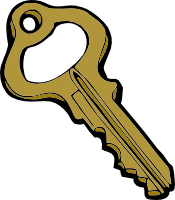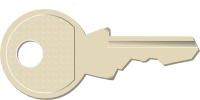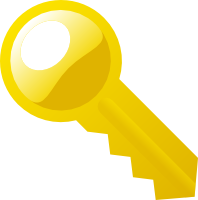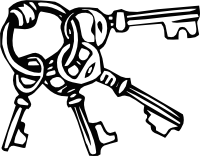Associations to the word «Key»
Noun
- Technique
- Scan
- Graphic
- Clicking
- Pts
- Hammock
- Db
- Vector
- Sonar
- Calculation
- Regulator
- Hue
- Midfield
- Mode
- Sentry
- Dot
- Dash
- Havana
- Factor
- Programmer
- Lesser
- Pensacola
- Desk
- Index
- Repeat
- Stevie
- Tenet
- Qualifying
- Telephone
- Satellite
- Hemingway
- Harpsichord
- Module
- Gateway
- Bahamas
- Hardware
- Rfc
- Panel
- Output
- Mike
- Timing
- Compression
- Sb
- Contributor
- Element
- Yearbook
- Rate
- Dispatch
- Computer
- Interface
- Subscriber
- Piano
- Correlation
- Sensor
- Diversity
- Animation
- Converter
- Wave
- Constellation
- Uterus
- Component
- Rom
- Efficiency
- Phone
- Buttons
- Initiation
- Command
- Encyclopedia
- Storage
- Operator
- Processing
- Strategist
- Daniel
- Pb
- Sustainability
Adjective
Wiktionary
KEY, noun. An object designed to open and close a lock.
KEY, noun. An object designed to fit between two other objects (such as a shaft and a wheel) in a mechanism and maintain their relative orientation.
KEY, noun. A crucial step or requirement.
KEY, noun. A guide explaining the symbols or terminology of a map or chart; a legend.
KEY, noun. A guide to the correct answers of a worksheet or test.
KEY, noun. (computing) One of several small, usually square buttons on a typewriter or computer keyboard, mostly corresponding to text characters.
KEY, noun. (music) One of a number of rectangular moving parts on a piano or musical keyboard, each causing a particular sound or note to be produced.
KEY, noun. (music) One of various levers on a musical instrument used to select notes, such as a lever opening a hole on a woodwind.
KEY, noun. (music) A hierarchical scale of musical notes on which a composition is based.
KEY, noun. (figurative) The general pitch or tone of a sentence or utterance.
KEY, noun. (botany) An indehiscent, one-seeded fruit furnished with a wing, such as the fruit of the ash and maple; a samara.
KEY, noun. (historical) A manual electrical switching device primarily used for the transmission of Morse code.
KEY, noun. (cryptography) A piece of information (e.g. a passphrase) used to encode or decode a message or messages.
KEY, noun. (internet) A password restricting access to an IRC channel.
KEY, noun. (computing) In a relational database, a field used as an index into another table (not necessarily unique).
KEY, noun. (computing) A value that uniquely identifies an entry in an associative array.
KEY, noun. (basketball) The free-throw lane together with the circle surrounding the free-throw line, the free-throw lane having formerly been narrower, giving the area the shape of a skeleton key hole.
KEY, noun. (biology) A series of logically organized groups of discriminating information which aims to allow the user to correctly identify a taxon.
KEY, noun. (slang) Kilogram (though this is more commonly shortened to kay).
KEY, noun. (architecture) A piece of wood used as a wedge.
KEY, noun. (architecture) The last board of a floor when laid down.
KEY, noun. (masonry) A keystone.
KEY, noun. That part of the plastering which is forced through between the laths and holds the rest in place.
KEY, noun. (rail transport) A wooden support for a rail on the bullhead rail system.
KEY, noun. (heraldic charge) The object used to open or close a lock, often used as a heraldic charge.
KEY, noun. The degree of roughness, or retention ability of a surface to have applied a liquid such as paint, or glue.
KEY, adjective. Indispensable, supremely important.
KEY, adjective. Important, salient.
KEY, verb. To fit (a lock) with a key.
KEY, verb. To fit (pieces of a mechanical assembly) with a key to maintain the orientation between them.
KEY, verb. To mark or indicate with a symbol indicating membership in a class.
KEY, verb. (telegraphy and radio telegraphy) To depress (a telegraph key).
KEY, verb. (radio) To operate (the transmitter switch of a two-way radio).
KEY, verb. (computing) (more usually to key in) To enter (information) by typing on a keyboard or keypad.
KEY, verb. (colloquial) To vandalize (a car, etc.) by scratching with an implement such as a key.
KEY, verb. To link (as one might do with a key or legend).
KEY, verb. (intransitive) (biology) (chiefly taxonomy) To be identified as a certain taxon when using a key.
KEY, verb. To fasten or secure firmly; to fasten or tighten with keys or wedges.
KEY, noun. One of a string of small islands.
KEY, noun. Alternative form of quay
KEY, proper noun. A surname.
KEY BINDING, noun. (computing) A key, or pattern of keys which, when pressed, cause something to happen.
KEY BINDINGS, noun. Plural of key binding
KEY BIT, noun. Bitting
KEY BOLT, noun. A bolt which has a mortise near the end, and is secured by a cotter or wedge instead of a nut.
KEY CARD, noun. Alternative spelling of keycard
KEY CARDS, noun. Plural of key card (alternative spelling of keycards).
KEY CHAIN, noun. Alternative spelling of keychain
KEY CHAINS, noun. Plural of key chain
KEY EXCHANGE, noun. (cryptography) An exchange of peers' keys at initialization phase of connection.
KEY EXCHANGES, noun. Plural of key exchange
KEY FOB, noun. An item carried on a key ring either as decoration or security
KEY FOB, noun. A remote control for locking/unlocking a car door, carried with the car keys
KEY FOBS, noun. Plural of key fob
KEY GRIP, noun. (film) The head of the grip department, involved with lighting and camera movement.
KEY GRIPS, noun. Plural of key grip
KEY IN, verb. (transitive) to enter data by keyboarding
KEY INTO, verb. To grasp; to understand the overall concept of or be acutely aware of the underlying and essential meaning of something. To get it.
KEY LIME, noun. A small yellow (when ripe, usually sold green) lime, Citrus aurantifolia, especially those from southern Florida.
KEY LIME PIE, noun. An American dessert made of Key lime juice, egg yolks, and sweetened condensed milk in a pie crust, often with a meringue topping.
KEY LIME PIES, noun. Plural of Key lime pie
KEY LIMES, noun. Plural of key lime
KEY LOG, noun. The log which, if removed, would free up the whole logjam.
KEY LOG, noun. The key issue or problem, which if (re)solved, would make the current task easy to complete. The issue around which the whole problem revolves.
KEY LOGGER, noun. (computing) Software or hardware designed to record keyboard entries, often for the purpose of stealing passwords or other sensitive data.
KEY LOGGERS, noun. Plural of key logger
KEY MONEY, noun. A payment required by a landlord or agent before accessing rented property.
KEY OFF, verb. (computing) To take as a controlling input datum
KEY PERFORMANCE INDICATOR, noun. (management) A financial or non-financial metric used to help an organization define and measure progress toward organizational goals.
KEY PERFORMANCE INDICATORS, noun. Plural of key performance indicator
KEY PRESS, noun. The depression of an input key; a keystroke.
KEY PRESS, noun. (computing) The buffered electrical signal resulting from such an event, sometimes distinguished from the release.
KEY PRESSES, noun. Plural of key press
KEY PRESSES, noun. Important or indispensable presses, possibly.
KEY SERVER, noun. Alternative spelling of keyserver
KEY SET IDENTIFIER, noun. (computing) (Internet) A value that is used to identify a key set.
KEY SET IDENTIFIERS, noun. Plural of key set identifier
KEY SIGNATURE, noun. (music) An indication of the key of a composition, giving the number of sharps or flats in the corresponding scale.
KEY SIGNATURES, noun. Plural of key signature
KEY STAGE, noun. (UK) (education) Any of the stages of the state education system of the United Kingdom and Gibraltar, introduced with the National Curriculum in 1988, defining the knowledge expected of students at various ages.
KEY STAGES, noun. Plural of Key Stage
KEY TO THE MIDWAY, noun. A fictional item, the subject of a fool's errand.
KEY TO THE MIDWAY, noun. A Ferris wheel or carousel, due to their central location.
KEY UP, verb. (architecture) To raise (the whole ring of an arch) off its centering, by driving in the keystone forcibly.
KEY UP, verb. (music) To raise the pitch of.
KEY UP, verb. (figurative) To produce nervous tension in.
KEY WORD, noun. Alternative form of keyword
KEY WRENCH, noun. An adjustable wrench in which the movable jaw is made fast by a key.
Dictionary definition
KEY, noun. Metal device shaped in such a way that when it is inserted into the appropriate lock the lock's mechanism can be rotated.
KEY, noun. Something crucial for explaining; "the key to development is economic integration".
KEY, noun. Pitch of the voice; "he spoke in a low key".
KEY, noun. Any of 24 major or minor diatonic scales that provide the tonal framework for a piece of music.
KEY, noun. A kilogram of a narcotic drug; "they were carrying two keys of heroin".
KEY, noun. A winged often one-seed indehiscent fruit as of the ash or elm or maple.
KEY, noun. United States lawyer and poet who wrote a poem after witnessing the British attack on Baltimore during the War of 1812; the poem was later set to music and entitled `The Star-Spangled Banner' (1779-1843).
KEY, noun. A coral reef off the southern coast of Florida.
KEY, noun. (basketball) a space (including the foul line) in front of the basket at each end of a basketball court; usually painted a different color from the rest of the court; "he hit a jump shot from the top of the key"; "he dominates play in the paint".
KEY, noun. A list of answers to a test; "some students had stolen the key to the final exam".
KEY, noun. A list of words or phrases that explain symbols or abbreviations.
KEY, noun. A generic term for any device whose possession entitles the holder to a means of access; "a safe-deposit box usually requires two keys to open it".
KEY, noun. Mechanical device used to wind another device that is driven by a spring (as a clock).
KEY, noun. The central building block at the top of an arch or vault.
KEY, noun. A lever (as in a keyboard) that actuates a mechanism when depressed.
KEY, verb. Identify as in botany or biology, for example.
KEY, verb. Provide with a key; "We were keyed after the locks were changed in the building".
KEY, verb. Vandalize a car by scratching the sides with a key; "His new Mercedes was keyed last night in the parking lot".
KEY, verb. Regulate the musical pitch of.
KEY, verb. Harmonize with or adjust to; "key one's actions to the voters' prevailing attitude".
KEY, adjective. Serving as an essential component; "a cardinal rule"; "the central cause of the problem"; "an example that was fundamental to the argument"; "computers are fundamental to modern industrial structure".
Wise words
Too often we underestimate the power of a touch, a smile, a
kind word, a listening ear, an honest compliment, or the
smallest act of caring, all of which have the potential to
turn a life around.














.png)
.png)



